news
Update : All set as Buhari inaugurates $1.5 billion Lekki Deep Seaport, first in Nigeria
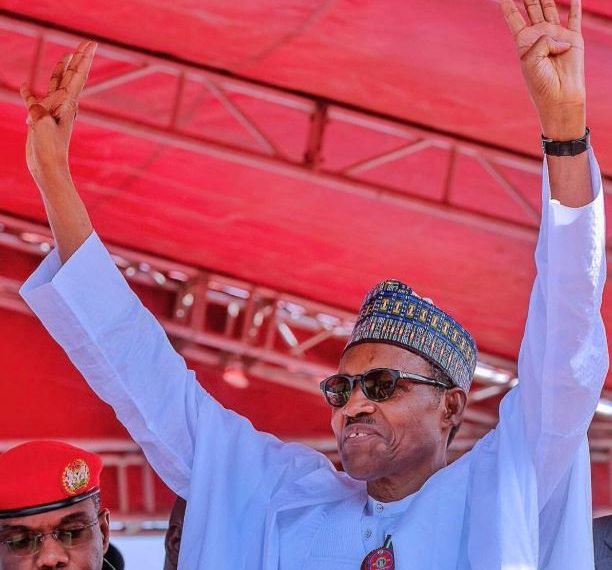
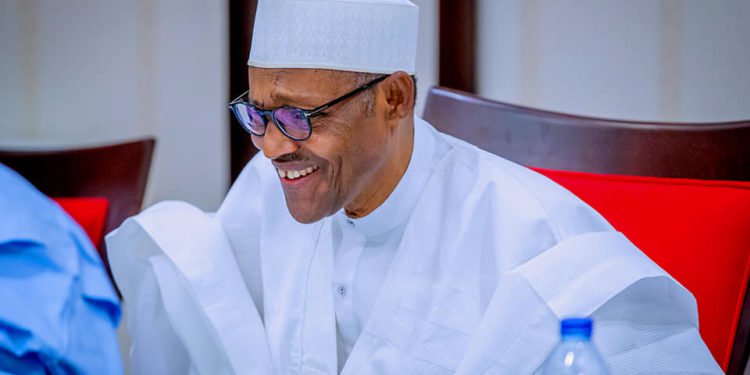 …..It ‘ll improve Nigeria port industry, promote int’l trade – CHEC Chairman
…..It ‘ll improve Nigeria port industry, promote int’l trade – CHEC Chairman
President Muhammadu Buhari will any moment officially commission the $1.5 billion Lekki Deep Seaport, first in Nigeria
As at 1.40 pm, dignitaries, including diplomatic corps have stormed the Lekki Deep Sea Port, venue of the commissioning awaiting President Buhari who is also billed to commission other iconic projects in Lagos.
Among the dignitaries in attendance include: Minister of Information and Culture, Lai Muhammed, Managing Director, MD, of Nigerian Ports Authority, NPA Mohammed Bello Koko, DirectorcGeneral DG, NIMASA, Bashir Jamoh and Executive Secretary, Nigerian Shippers Council, Emmanuel Jime, among others.
By its size and depth, the Lekki Deep Seaport is expected to be the game changer in West and Central Africa.
Other projects slated for commissioning are the 18.75km six-lane rigid-pavement Eleko Junction to Epe Expressway; the John Randle Centre for Yoruba Culture and History; and the MRS Lubricant Factory in Apapa
Buhari, on arrival with the Lagos State Governor, Bababjide Sanwo-Olu, will be conducted round the port’s 1.5km long main.
The seaport’s spanning over 600 meters, is enough for a vessel of up to 16,000 standard containers (TEU). The approach channel is 11 km long.
The Lekki Deep Seaport made history last year as it received the first-ever vessel (Zhen Hua 28) to berth at the port.
The port has three terminals: the container terminal, the liquid terminal, and the dry bulk terminal.
According to the promoters, the container terminal has an initial draft of 14 metres, with the potential for further dredging to 16.5 metres. The terminal is able to handle 2.5 million 20-foot standard containers per year.
The deep-sea port of Lekki is the first port in Nigeria with ship-to-shore cranes. It has three of these container gantry cranes; they belong to the “Super-post-Panamax” group – this means that they can reach and unload the rearmost row of containers even if the container ship is wider than the Panama Canal (49m or 160ft maximum boat beam).
The STS cranes have a fixed rail at the quayside. They can lift 65 tons in twin-lift mode, 50 tons in single-lift mode or 85 tons under a hook.
The port’s computerised system will allow container identification and clearance from the office, and human interaction will be minimal in the physical operations
When phase 2 is completed, the deep sea port will have three liquid berths. The liquid cargo terminal will handle vessels up to 45,000 DWT (dead weight tonnage) and can expand to reach a capacity of 160,000 DWT.
Liquids (like petrol or diesel) will be handled at a tank farm near the port. The docking area is equipped with loading arms. It is also connected by pipelines along the breakwater.
The bulk terminal with an available quay length of 300m can accommodate a Panamax class vessel (75,000 DWT).
Goodwill messages
Meanwhile, Chairman of China Harbour Engineering Company, CHEC, the project construction company,Tang Qiaoliang, said that the completion and commencement of operation of Lekki Deep Sea Port will improve the Nigerian port industry, easing the burden of cargo shipment flow, creating employments, and ultimately promote international trade in the nation.
Qiaoliang stated this at the official commissioning.
The CHEC Chairman explained that Lekki Port is the first deep sea port in Nigeria, a major trade hub in West Africa.
According to him, “Lekki Port is the first deep sea port in Nigeria, a major trade hub in West Africa. It will improve the Nigerian port industry, easing the burden of cargo shipment flow, creating employments, and ultimately promote international trade in the nation.
“As an international top-tier engineering contractor, investment operator, urban developer and ecological manager, CHEC insists to its philosophy ‘value-orientation’, commits itself to upgrading of ‘platform plus industrial leading’strategy.
“With such strategy, we see the opportunity in Nigeria, and believe in its potential.
“So we committed the adequate financial investments and essential technology, together with Nigerians in the construction and operation of the Port.
“Under the framework of the China Africa Forum and the Belt and Road Initiative, we look forward to establishing long-term strategic partnerships, in the infrastructure sector with the Federal Government of Nigeria.
“This will ultimately deepen the relations and cooperation between Nigeria and China, better serving the Nigerian people and its economy,” he noted.
Similarly, Chairman Tolaram, Mohan Vaswani in his goodwill message, commended both the State and Federal Government for their Corporation and dedication to the çompletion of the project.
Vaswani thanked President Mohammadu Buhari for “for creating an enabling environment for foreign investors to flourish in Nigeria.
“I must thank everyone who has been with us through thick and thin, Jending their support and encouraging us to make sure we deliver on this project. This kept us going even when it seemed there was no hope.
“Lagos State Government since the time of my good friend and brother, Asiwaju Bola Ahmed Tinubu’s government, through successive administrations up till the dynamic and hardworking Governor, Babajide Sanwo-Olu, has been with us forging a path together on this iconic project.
“At the Federal level and the parastatals, we have enjoyed strong cooperation from everyone.
“I also celebrate our partner, China Harbour Engineering Company for committing resources to the project which was a turning point for the project,” he noted.
Chairman Tolaram, Mr. Mohan Vaswani, in his address, said, “This Port being completed and commissioned is an important milestone for Tolaram and Nigeria and we are proud of our humble efforts to develop a world-class port in Nigeria.
“This significant milestone will definitely increase the economic well-being of Nigeria and its people and that is the mostimportantthing.
“This journey started in 2003 or so, when President Olusegun Obasanjo gave the approval for the port project to be developed. The journey has been challenging with so many hurdies but with God on our side, and the support of the President Buhari administration we have persevered and today we all have something to be proud of.
“Thank you Mr. President for creating an enabling environment for foreign investors to flourish in Nigeria. I must thank everyone who has been with us through thick and thin, lending their support and encouraging us to make sure we deliver on this project. This kept us going even when it seemed there was no hope.
“Lagos State Government since the time of my good friend and brother, Asiwaju Bola Ahmed Tinubu’s government, through successive administrations up till the dynamic and hardworking Mr. Governor, Babajide Sanwo-Olu, has been with us forging a path together on this iconic project.”
Chairman Lekki Deep Sea Port
The chairman of Lekki Port, Mr Biodun Dabiri, had earlier said: “From what I can see, in the next four to five years, the economy of the Lekki environs would be worth $25 billion which translates to N10 trillion – an investment amount almost similar to the whole budget of Nigeria.
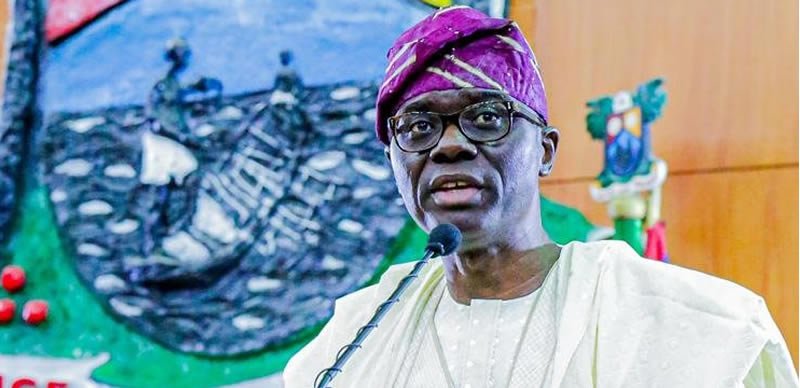
“I can tell you that if we focus on this axis alone, the ranking of Lagos as one of the largest economies in Africa would be better; we could move from the 4th to 3rd, 2nd and eventually Number 1.”
news
BREAKING: Tinubu Names Tunji Disu Acting Inspector General After Egbetokun’s Exit

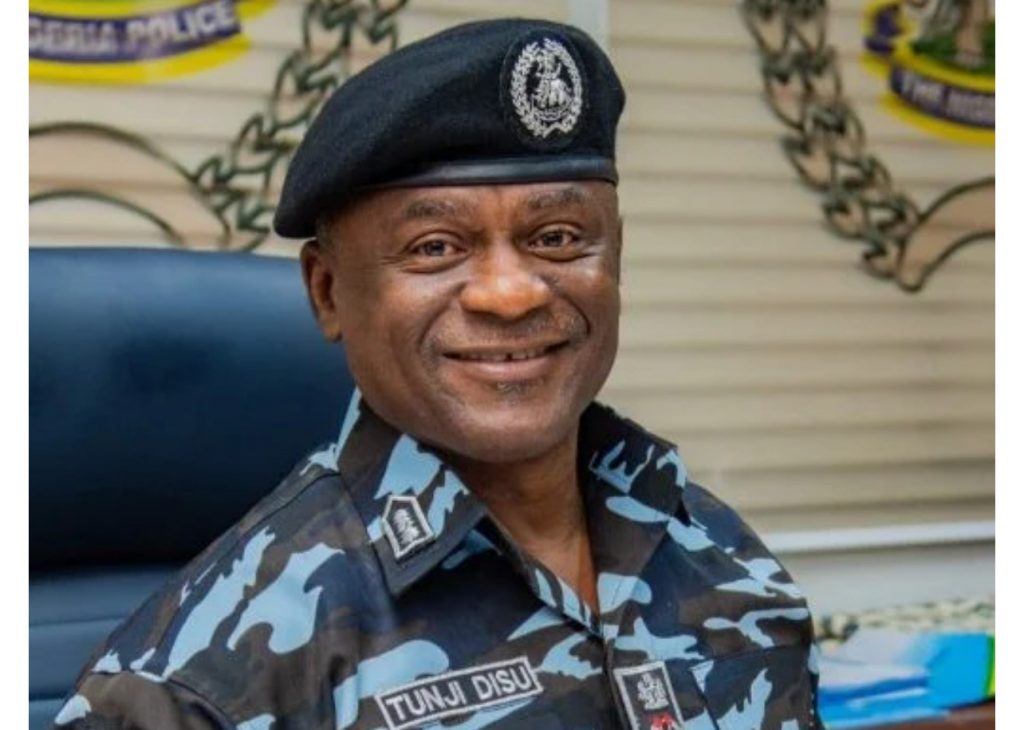
President Bola Tinubu has accepted the resignation of the Inspector-General of Police, Kayode Egbetokun, and approved the appointment of Tunji Disu as Acting Inspector-General of Police with immediate effect.
Our correspondent had earlier reported that Egbetokun tendered his resignation letter on Tuesday, citing pressing family considerations.
Appointed in June 2023, Egbetokun was serving a four-year term scheduled to conclude in June 2027, in line with the amended provisions of the Police Act.
In a statement issued on Tuesday by his Special Adviser on Information and Strategy, Bayo Onanuga, the President received the letter earlier on Tuesday and expressed appreciation for his service to the nation.
He also commended Egbetokun’s “decades of distinguished service to the Nigeria Police Force and the nation,” acknowledging his “dedication, professionalism, and steadfast commitment to strengthening internal security architecture during his tenure.”
“In view of the current security challenges confronting the nation, and acting in accordance with extant laws and legal guidance, President Tinubu has approved the appointment of Assistant Inspector-General of Police Tunji Disu to serve as Acting Inspector-General of Police with immediate effect.
“The President is confident that AIG Disu’s experience, operational depth, and demonstrated leadership capacity will provide steady and focused direction for the Nigeria Police Force during this critical period,” the statement read.
It added that in compliance with the provisions of the Police Act 2020, the President will soon convene a meeting of the Nigeria Police Council to formally consider Disu’s appointment as substantive Inspector-General of Police, after which his name will be forwarded to the Senate for confirmation.
The President reaffirmed his administration’s commitment to enhancing national security, strengthening institutional capacity, and ensuring that the Nigeria Police Force remains professional, accountable, and fully equipped to discharge its constitutional responsibilities.
news
Breaking : Nigeria Gets New Electoral Act as Tinubu Signs 2026 Reform Bill

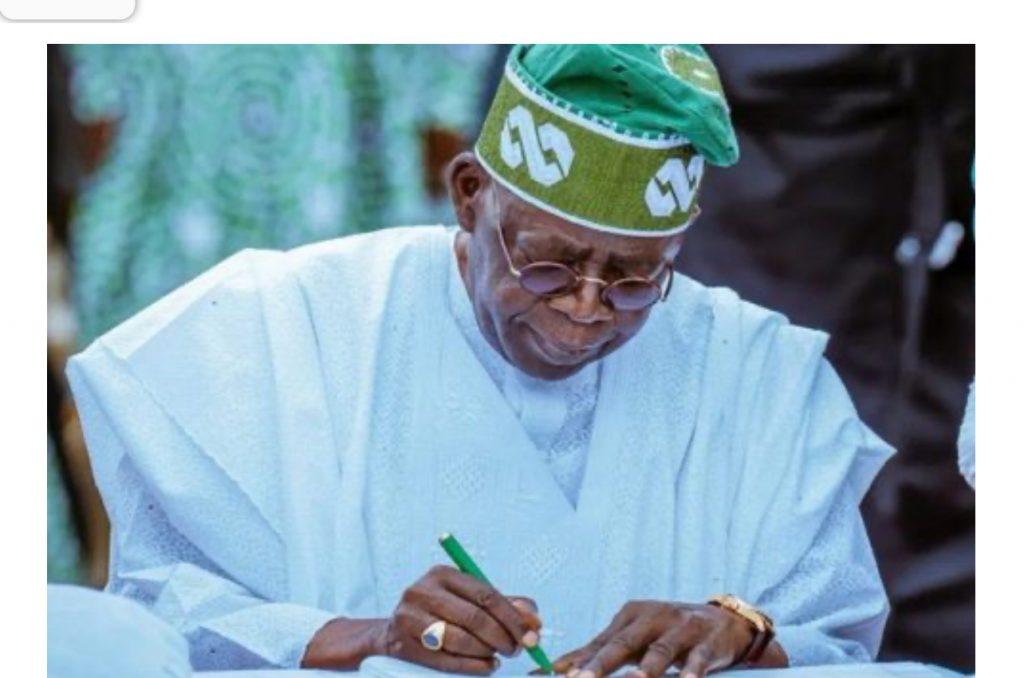
President Bola Tinubu has signed the Electoral Act 2026 (Amendment) into law, days after the Independent National Electoral Commission (INEC) released the timetable for the 2027 general elections.
The signing ceremony took place at the State House, Abuja, at about 5:00pm on Wednesday, with principal officers of the National Assembly in attendance.
The National Assembly had on Tuesday passed the Electoral Act 2026 (Amendment) Bill.
The latest amendment comes amid intense public debate over the electronic transmission of election results in real time.
Last week, protests erupted at the National Assembly complex as civil society organisations and opposition figures mounted pressure on lawmakers to mandate live transmission of results from polling units directly to INEC’s central server.
The protesters argued that real-time transmission would reduce result manipulation and strengthen public confidence in the electoral process.
However, the ruling All Progressives Congress (APC) and some stakeholders have raised concerns about the technical feasibility of live transmission, particularly in communities with weak telecommunications infrastructure. They have argued for a phased or hybrid approach that would allow manual collation where electronic systems fail.
news
EFCC Extends El-Rufai’s Stay in Custody Amid ₦432bn Probe
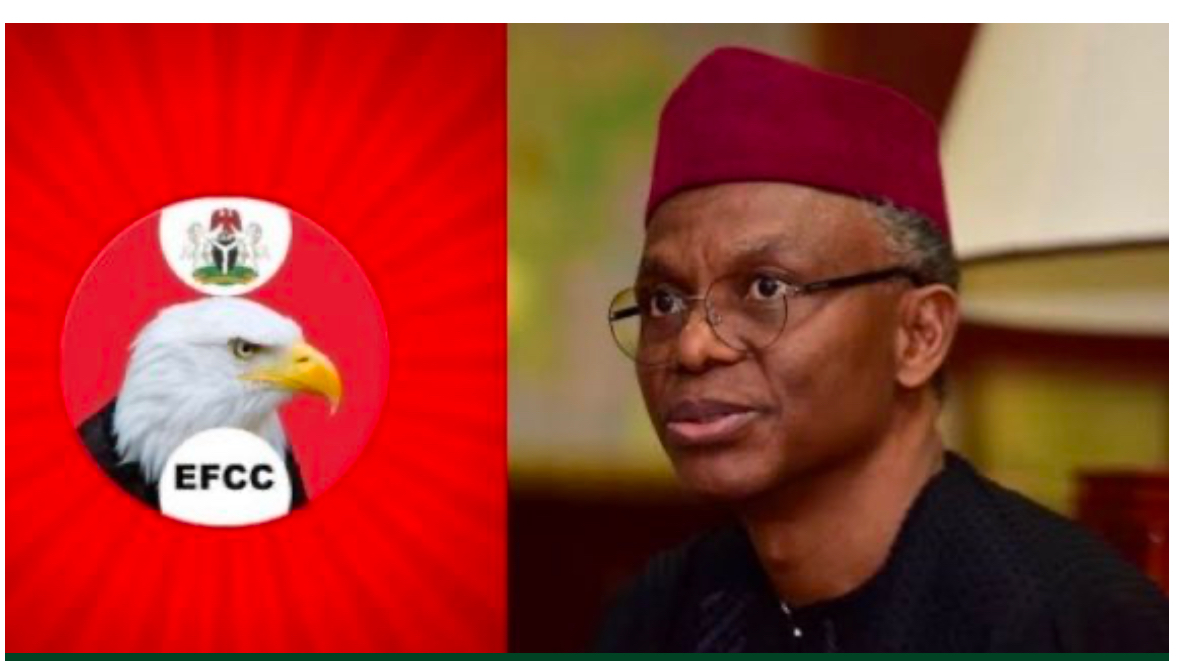
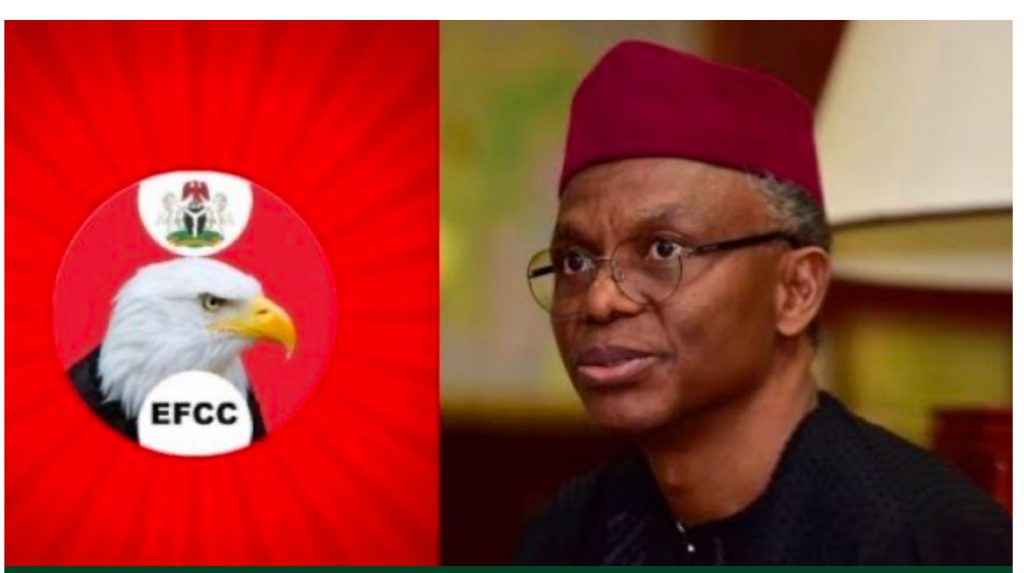
Former Kaduna State Governor, Nasir El-Rufai, on Tuesday spent the second night in the custody of the Economic and Financial Crimes Commission, as his lawyer, A.U Mustapha (SAN), pushes for his release on bail.
There are, however, indications that the commission may seek a remand order to extend his stay in custody to enable him to respond to questions posed by investigators handling his matter.
The former governor arrived at the EFCC headquarters in Abuja on Monday around 10 a.m. for questioning in connection with an alleged N432bn corruption probe. He was, however, detained at the commission, where investigators continued to grill him.
An official of the commission who pleaded anonymity said the anti-graft agency was considering obtaining a remand order after the expiration of the hours allowed by law to enable investigators conclude questioning him.
“Forget the speculations being peddled on social media that he has been released. He has not. El-Rufai is still with us and will be spending another night in custody.
“He is very much with us and will remain so because the investigators are considering getting a remand order after the expiration of the 48 hours allowed by law.
“The investigators need some time with him to answer questions arising from his eight years as governor in Kaduna State,” the source said.
Speaking in a telephone conversation with The PUNCH on Tuesday, El-Rufai’s counsel, Mustapha, confirmed that the former governor remained with the anti-graft agency, while insisting that his client had fully cooperated with investigators.
He described his client as a responsible citizen who is not a flight risk if granted bail.
Mustapha said, “Well, as a responsible citizen, he was invited and, true to his word, he honoured the invitation.
“As we speak, he is still with the EFCC. He is cooperating to the best of his capacity, and we hope that the EFCC, given its integrity, will be kind enough to admit him to bail because he is presumed innocent, and I am sure if he is granted bail, he will not jump bail.
“He is a responsible citizen, and everybody knows him. He came to Nigeria on his own volition. He wrote a letter that he was going to honour the EFCC invitation, and he kept his word as a man of integrity. We’re hopeful that very soon he will be granted bail.”
When asked about the specific allegations against his client, Mustapha declined to offer details.
“You’re asking the right question from the wrong person. That question can only be answered by the EFCC and not by me. I would just be speculating, and lawyers don’t do that.”
Pressed further on whether he witnessed parts of the interrogation and what it was about, Mustapha responded, “That would be prejudicial. It’s a confidential matter and not meant for public consumption.”
The EFCC’s interrogation is linked to the report of an ad hoc committee of the Kaduna State House of Assembly set up in 2024 to probe finances, loans, and contracts awarded between 2015 and 2023 during El-Rufai’s administration.
EFCC extends El-Rufai detention, Plateau indigenes killed, other top stories
Rep backs real-time electronic transmission of election results
The committee, chaired by Henry Zacharia, had alleged that several loans obtained during the period were not utilised for their intended purposes.
While presenting the report, the Speaker, Yusuf Dahiru Leman, claimed that about N423bn was allegedly siphoned under the former governor’s administration.
The committee recommended the investigation and prosecution of El-Rufai and some former cabinet members over alleged abuse of office, diversion of public funds, money laundering, contract awards without due process, and reckless borrowing.
The Assembly subsequently forwarded petitions to the EFCC and the Independent Corrupt Practices and Other Related Offences Commission.
El-Rufai has denied the allegations, describing the probe as politically motivated, and insisted that loans obtained during his tenure were properly appropriated and used for infrastructure, education, healthcare, and security.
On Monday, an EFCC source said the commission had been investigating the matter for about a year, noting that suspects are usually invited after investigations have reached an advanced stage.
“The commission has been investigating him for about a year now. As a commission, we don’t just rush to invite suspects. Persons accused are always the last; that is, after we might have done our investigation to an advanced stage.
“We are investigating him on the allegations against him by the Kaduna State Assembly,” the source said.
Meanwhile, in a separate development, the Department of State Services has filed criminal charges against El-Rufai before the Federal High Court in Abuja over alleged unlawful interception of the phone communications of the National Security Adviser, Nuhu Ribadu.
The three-count charge, marked FHC/ABJ/CR/99/2026, was filed under the Cybercrimes (Prohibition, Prevention, etc.) Amendment Act, 2024, and the Nigerian Communications Act, 2003.
According to the charge sheet, El-Rufai allegedly admitted during a February 13, 2026, appearance on Arise TV’s Prime Time Programme that he and unnamed associates unlawfully intercepted Ribadu’s communications.
Count One alleged that El-Rufai “did admit during the interview that you and your cohorts unlawfully intercepted the phone communications of the National Security Adviser, Nuhu Ribadu,” an offence said to be punishable under Section 12(1) of the Cybercrimes Amendment Act.
Count Two accused him of acknowledging knowledge of an individual involved in the alleged interception without reporting it to security agencies, while Count Three alleged that he and others still at large used technical equipment that compromised public safety and national security.
The prosecution further claimed that the alleged act, reportedly admitted during the television interview, caused “reasonable apprehension of insecurity among Nigerians.”
He is yet to be arraigned.
-

 news5 years ago
news5 years agoUPDATE: #ENDSARS: CCTV footage of Lekki shootings intact – Says Sanwo – Olu
-

 lifestyle6 years ago
lifestyle6 years agoFormer Miss World: Mixed reactions trail Agbani Darego’s looks
-

 health5 years ago
health5 years agoChairman Agege LG, Ganiyu Egunjobi Receives Covid-19 Vaccines
-

 lifestyle4 years ago
lifestyle4 years agoObateru: Celebrating a Quintessential PR Man at 60
-

 health6 years ago
health6 years agoUPDATE : Nigeria Records 790 new cases of COVID-19
-

 health6 years ago
health6 years agoBREAKING: Nigeria confirms 663 new cases of COVID-19
-

 entertainment1 year ago
entertainment1 year agoAshny Set for Valentine Special and new Album ‘ Femme Fatale’
-

 news9 months ago
news9 months agoBREAKING: Tinubu swears in new NNPCL Board


